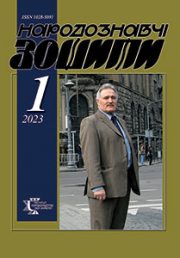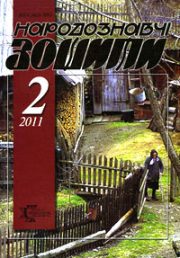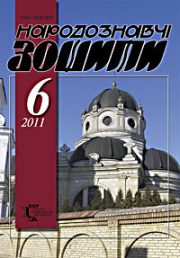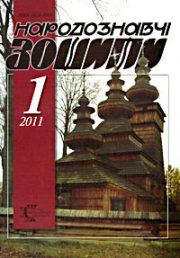The Ethnology Notebooks. 2024. № 1 (175), 76—82
UDK 94(100=161.2):[061.2:32]:316.485.8
DOI https://doi.org/10.15407/nz2024.01.076
THE WORLD CONGRESS OF FREE UKRAINIANS: CRISES AND WAYS TO OVERCOME THEM
VAKHNIANYN Anna
- ORCID: https://orcid.org/0000-0002-3111-6183
- Assistant, Ivan Franko National University of Lviv,
- Department of World History of the Modern Time,
- 1, Universyty street, 79000, Lviv, Ukraine,
- Contacts: e-mail: anya.vahnyanyn@gmail.com
Abstract. Introduction. For a long time, ideological and political disagreements among Ukrainians abroad hindered their consolidation. Eventually, in 1967, the World Congress of Free Ukrainians (WCFU) was established as a non-party coordinating superstructure of the Western Ukrainian diaspora, which united almost all organizations from different countries of the Ukrainian people’s settlements in its ranks. However, this institution was faced with the threat of a split several times.
Problem Statement. The most significant threat to the dissolution of the WCFU existed during the Second Congress in 1973 and in 1983 during the Fourth Congress.
Purpose. The purpose of this article is to determine the impact of misunderstandings within the political environment of the Ukrainian diaspora on the functioning of the WCFU and to determine the tools for overcoming them and preserving this institution.
Methods. The principles of historicism, multifactoriality, theoretical analysis, generalization, and comparison lay the ground for our study.
Results. In this article, the prerequisites and reasons for conflicts that threatened the preservation of the WCFU are traced, as well as the ways to resolve them. The role of specific individuals and structures in fueling and overcoming these conflicts is analyzed, and tools for preventing and resolving crisis situations within the WCFU are highlighted.
Conclusion. Most of the crisis moments in the WCFU broke up due to the aspirations of individual political factions to have greater influence in the coordinating structure. This was most often evident in the formation of the leadership of the WCFU, where various associations lobbied for their candidates. In our opinion, the role of a key compromise-seeking instrument was played by Article 23 of the Statute, according to which delegates must make decisions of the Congress by consensus. This encouraged them to engage in mutual concessions in crafting resolutions and decisions, ensuring a balance between member organizations and preventing the WCFU from splitting into a majority and a minority.
Keywords: Ukrainian diaspora, World Congress of Free Ukrainians, consolidation, Mykola Plaviuk, Askold Lozynskyj, OUN.
Received 3.01.2024
REFERENCES
- Reshetchenko, D. (2018). State Center of Ukrainian People’s Republic in Exile: Preconditions for Reorganization (1945—1948). Ukrainskyi istorychnyi zhurnal, 3, 111—123 [in Ukrainian].
- Lendel, M. (1998). Experience of self-organization of the Ukrainian ethnic group in the USA. Karpatskyi krai: istoryko-kraieznavchyi zhurnal 1—2 (118), 64—71 [in Ukrainian].
- Central State Archives of Foreign Archival Ucrainica (TsDAZU). Fund 36. Description 1. Case 4: Documents (protocol of the meeting of the preparatory committee, program, lists of organizations, delegates, media representatives, meeting rules, regulations, financial statements, resolutions, lists of members of the Secretariat, communique, newspaper’s articles about the congress, draft collection of materials ets). April 14, 1973—September 30, 1985 [in Ukrainian].
- Central State Archives of Foreign Archival Ucrainica (TsDAZU). Fund 36. Description 1. Case 31: Documents (appointments, minutes of meetings, additions and changes to the charter, etc.). April 22, 1974—November 27, 1983 [in Ukrainian].
- Central State Archive of Public Associations and Ukrainians (TsDAHOU). Fund 429. Description 1. Case 16: Documents (communication letter, transcript) of the XVI Plenary Session (April 23, 1983). March 15—April 23, 1983 [in Ukrainian].
- Central State Archive of Public Associations and Ukrainians (TsDAHOU). Fund 429. Description 1. Case 18: Documents (protocols, order of business, projects, distribution of responsibilities, letters on organizational issues, etc.) of the Presidium of the Secretariat. January 2, 1979—March 27, 1987 [in Ukrainian].
- Central State Archive of Public Associations and Ukrainians (TsDAHOU). Fund 429. Description 1. Case 20: Reports on the activities of the Presidium of the Secretariat, letters on the preparation of commission reports. March 10, 1978—November 23, 1988 [in Ukrainian].
- Didiuk, V. (Ed.). (1986). Banquet. Second World Congress of Free Ukrainians: proceedings (Pp. 410—411). Toronto; New York; London: The Secretariat of the World Congress of Free Ukrainians [in Ukrainian].
- Veryga, V. (Ed.). Seventh Plenary Session. (1988). Third World Congress of Free Ukrainians: proceedings (Pp. 177—183). Toronto; New York; London: The Secretariat of the World Congress of Free Ukrainians [in Ukrainian].
- Veryga, V. (Ed.). (1991). Representation of Ukrainians of America in the WCFU. Fourth World Congress of Free Ukrainians: proceedings (Pp. 25—26). Toronto; New York; London: The Secretariat of the World Congress of Free Ukrainians [in Ukrainian].
- Veryga, V. (Ed.). (1991). Opening of the IV World Congress of Free Ukrainians, First Plenary Session, November 30, 1983. Fourth World Congress of Free Ukrainians: proceedings (Pp. 39—64). Toronto; New York; London: The Secretariat of the World Congress of Free Ukrainians [in Ukrainian].
- Veryga, V. (Ed.). (1991). Second Plenary Session, December 1, 1983. Fourth World Congress of Free Ukrainians: proceedings (Pp. 87—125). Toronto; New York; London: The Secretariat of the World Congress of Free Ukrainians [in Ukrainian].
- Bilak, Ya. (2017, August 16). Memories of the former head of the Human Rights Commission about the creation and activities of the UWC. New Pathway Ukrainian News [in Ukrainian].
- Bilak, Ya. (1927). Recorded by Pylyp Sohan, City of Toronto, Ontario, May 24, 2016. Access provided by The Ukrainian Canadian Research&Documentation Center (UCRDC) [in Ukrainian].
- Plaviuk, M., Teren, V., & Khorunzhyi, Yu. (Eds.). (2002). From a peasant son to a statesman. Ukraine is my life (Vol. 1). Kyiv: Vydavnytstvo im. O. Telihy [in Ukrainian].
- Lozynskyi, A. (1952). Recorded by Anna Vahnyanin, city of Lviv. October 20, 2023 [in Ukrainian].
- Burachok, L., & Isaievych, Ya (Ed.). (2009). Osyp Nazaruk. Western Ukrainian People’s Republic. 1918—1923. Governments. Figures. 1918—1923. Lviv: Instytut ukrainoznavstva im. I. Krypiakevycha [in Ukrainian].
- Communication of the Coordination Ukrainian Committee. 1946. Retrieved from: https://diasporiana.org.ua/wp-content/uploads/books/26496/file.pdf (Last accessed: 19.12.2023) [in Ukrainian].
- Kuropas, S. (1981, July—September). Commemoration of June 30, 1941 and America. Samostiina Ukraina [in Ukrainian].
- (1983, December 6). The IV World Congress of Free Ukrainians ended under the sign of reconciliation. Freedom.







